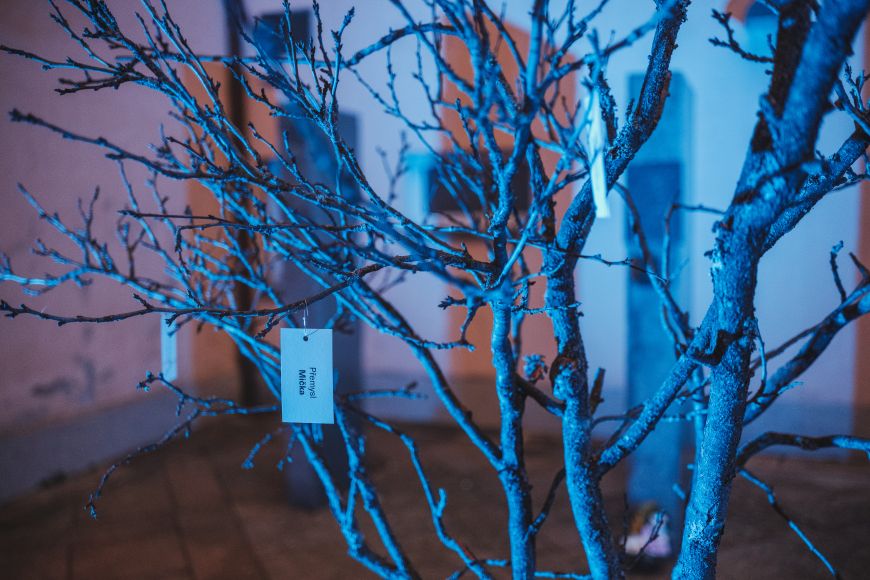Since 2019, Masaryk University has been commemorating the Nazi atrocities of the Second World War, when Kounic Residence Halls were turned into a Gestapo prison and execution site. After the closure of Czech universities on 17 November 1939, it became a place from which students and resistance fighters were taken to concentration camps or where they met their end.
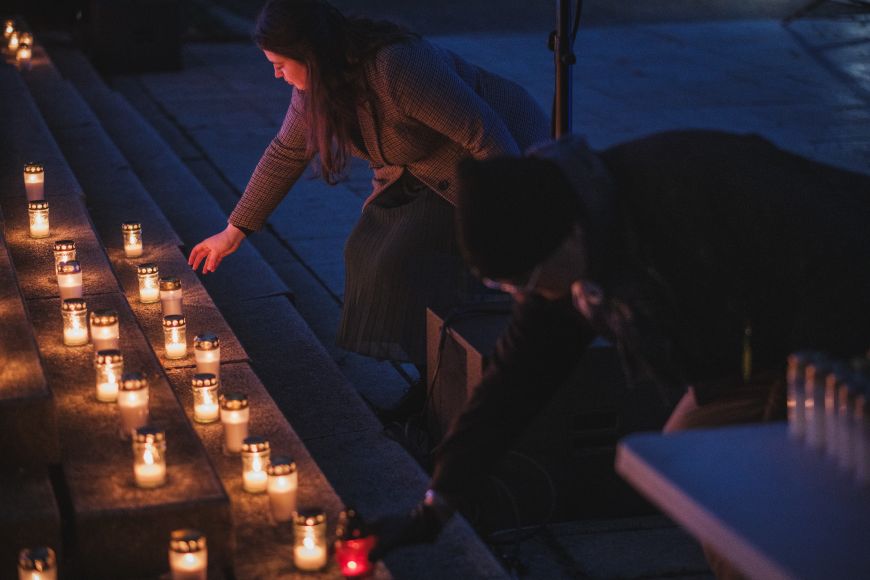
“Every year we commemorate these tragic events and reflect on the causes that led to them in order to prevent them from happening again,” said Jiří Hanuš, Masaryk University’s Vice-Rector for Academic and Cultural Affairs, in his introductory address. The names of those executed were heard by a silent crowd, accompanied by heartbeats and gusts of wind. Martin Bareš, Rector of Masaryk University, and Dominik Levíček, Chairman of the Student Chamber of the Academic Senate of Masaryk University, laid wreaths at the memorial, followed by representatives of all ten faculties, deans or vice-deans, each paired with a student representative. The atmosphere of the event was underscored by the performance of the Masaryk University Choir.
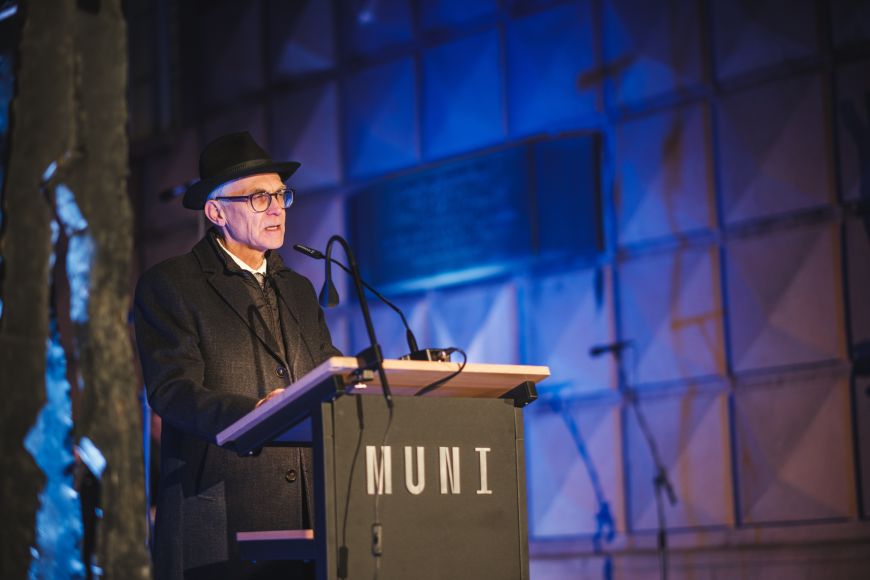
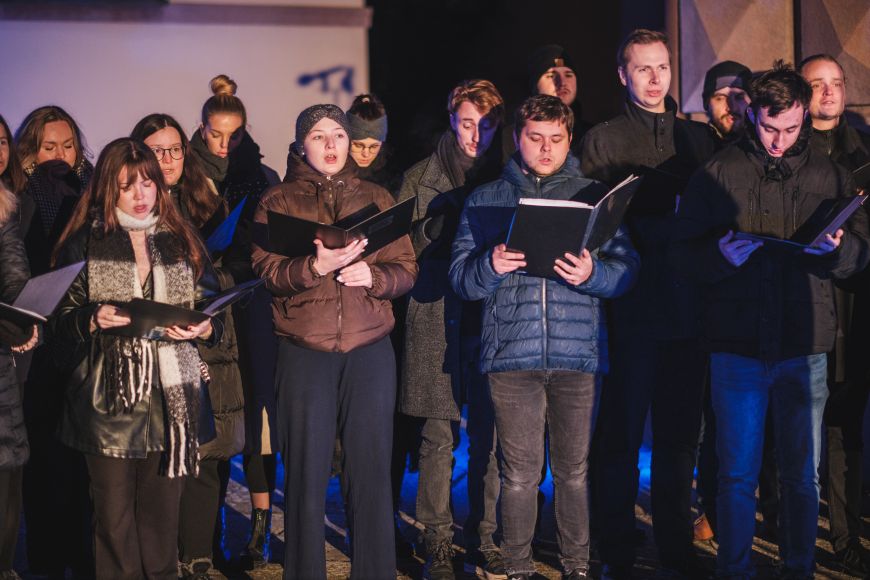
In his speech, Rector Martin Bareš noted that in recent years he had recalled the fate of a number of victims: Professor Jan Florian, the dean of the pre-war Faculty of Medicine, Professor Vladimír Groh, Professor Jan Uhr, Professor Josef Tvrdý and Oldřich Pechal, the commander of the Zinc parachute detachment, who was awarded the Czech Medal of Heroism (in memoriam) at the Prague Castle this October. The Rector’s speech was centred around the idea of resistance against evil and lies, as well as the resistance to occupation itself. Quoting the translator and philosopher Václav Černý, he described the “national universality” of the resistance and the role of the intelligentsia: “The worker stood shoulder to shoulder with the artist, the peasant with the scientist, the civil servant with the soldier; there was no class or profession that did not supply the Resistance with its contingent of volunteers... But there were two – not classes, but strata of society – that volunteered with alacrity, with an overwhelming proportion of their numbers, so that they inadvertently became the true bearers of the resistance idea: the soldiers of the old army and the intelligentsia.”
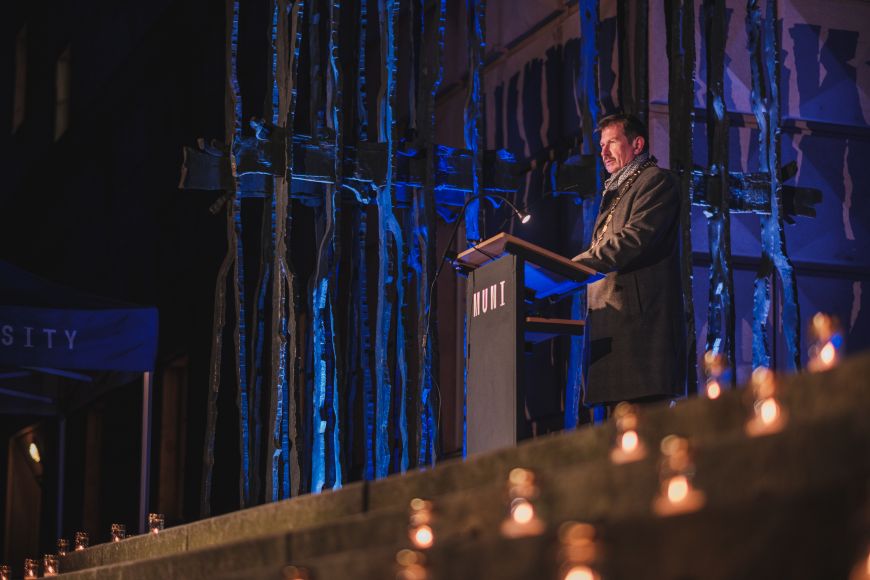
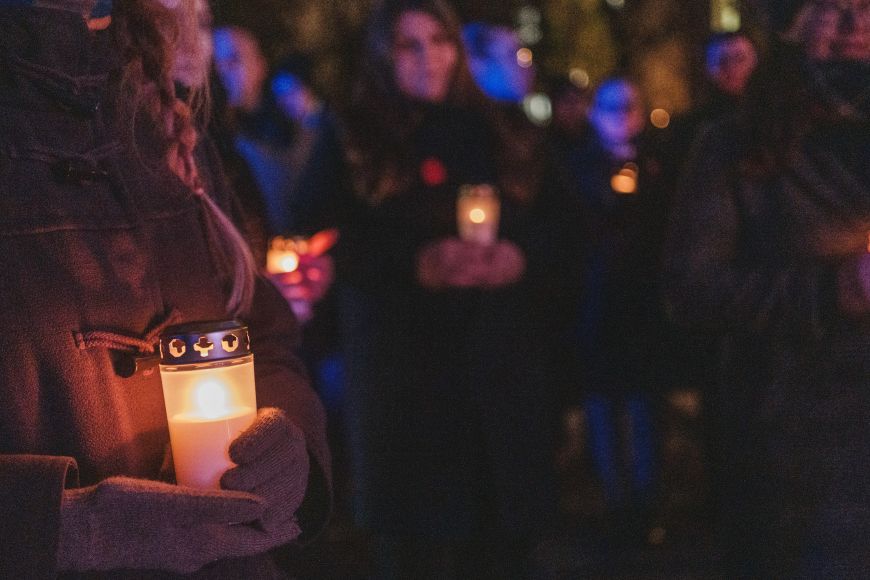
Looking back on the history of Kounic Residence Halls, Rector Bareš emphasised that it is a place “where everything is illuminated as if by a spotlight, and suddenly it is very clear who is standing where. (...) We must always be wary of people and forces that behave fanatically and militantly,” said Martin Bareš, adding that we must be vigilant against people who want to control speech and thought, because this goes against the very essence of human freedom. Those who died at Kounic Residence Halls certainly wanted to live free. “And it is you who can now live free for us,” said Rector, speaking for the victims, adding: “...and that is both a great commitment and a great challenge.”
Dominik Levíček, Chairman of the Student Chamber of the Academic Senate, called for hope on behalf of the students: “Two seemingly incompatible worlds meet here in Kounic Residence Halls. The world of immeasurable pain and the world of hope. We feel the pain of the loss of humanity, because in this place people were killed by people. That is why we need to invite hope, in communication and education. Only in this way can we maintain respect for human life.” Along with hope, he also stressed the importance of living a free life.
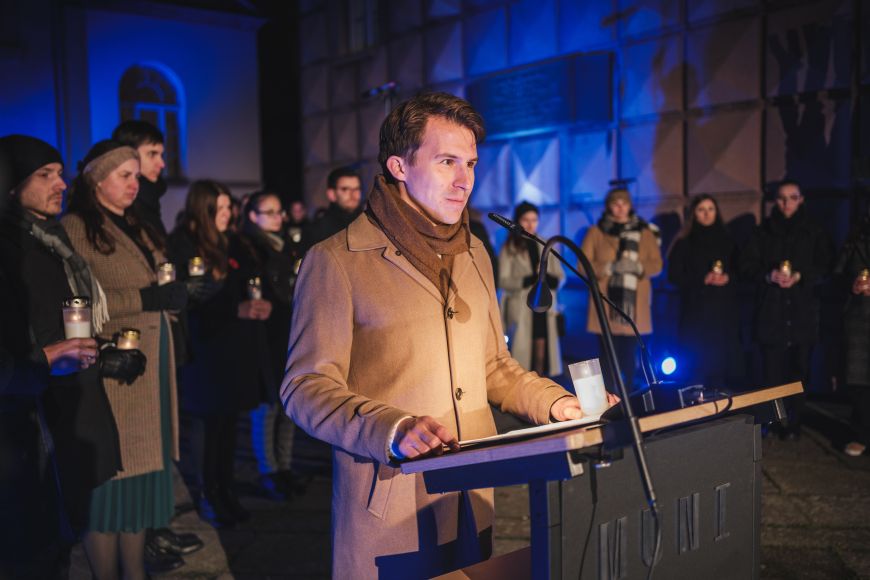
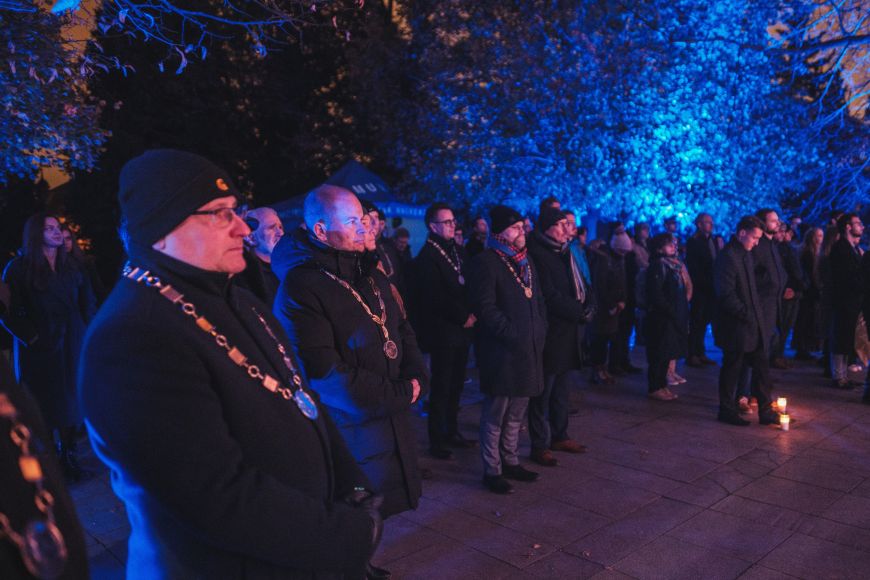
At the end of the ceremony, the students made hearts out of candles on the steps leading up to the memorial. All those present then joined in a moment of silence.
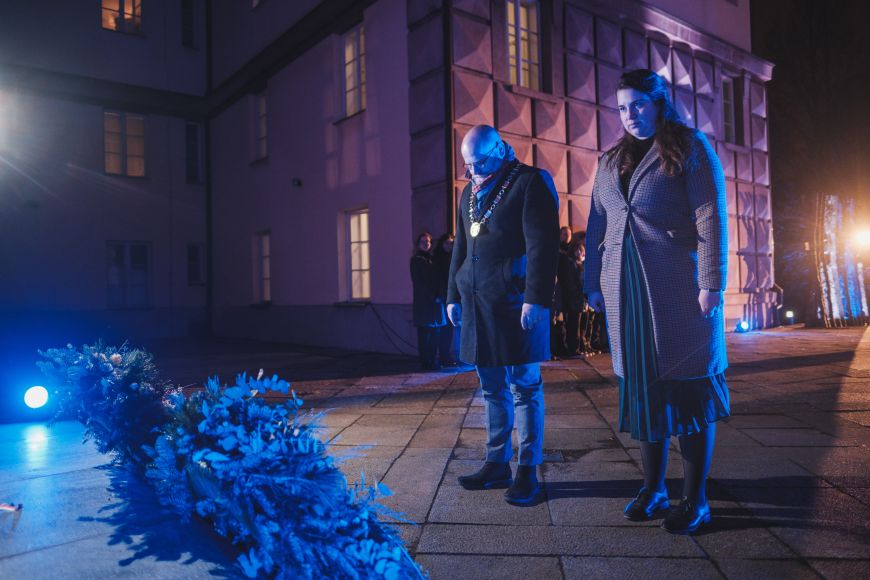
Dean Martin Škop and Anna Blechová laid wreaths for the Faculty of Law.
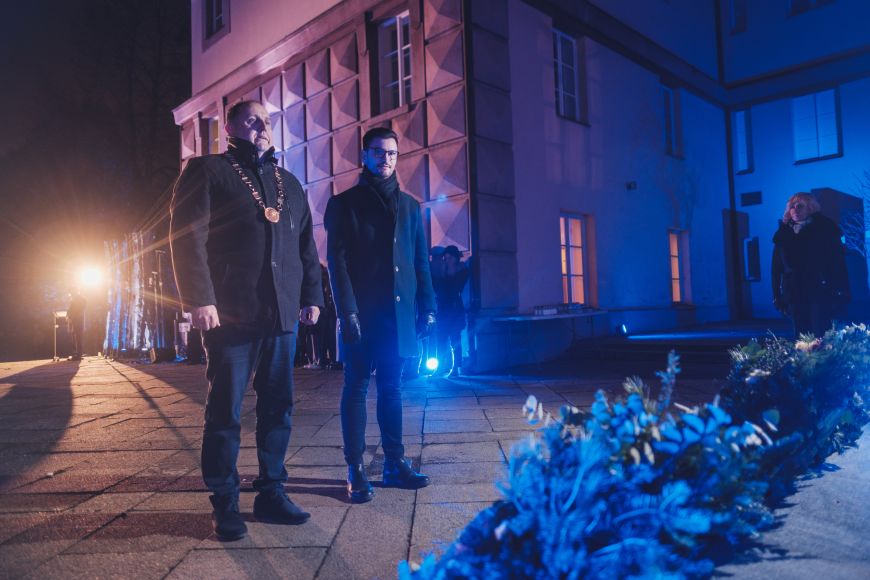
Dean Martin Repko and Kristián Kalianko laid wreaths for the Faculty of Medicine.
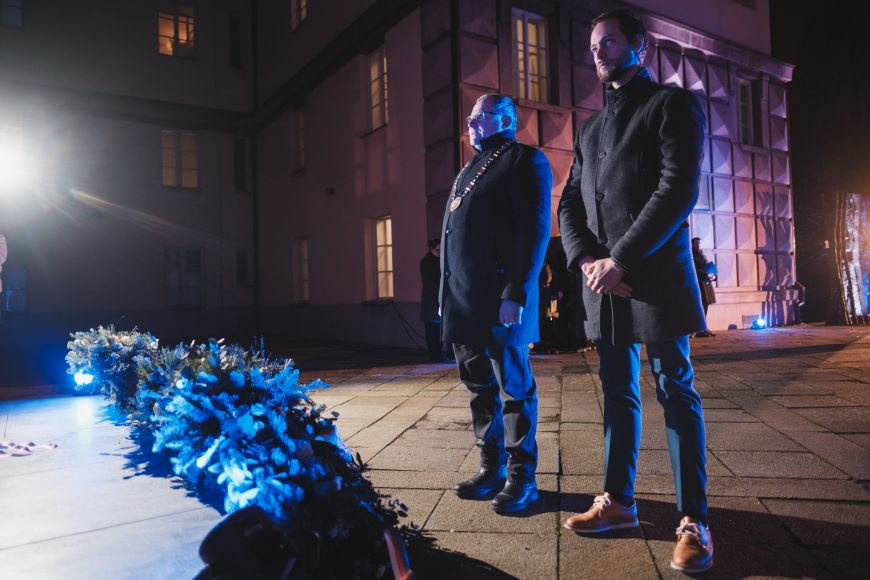
Dean Tomáš Kašparovský and Tomáš Brom laid wreaths for the Faculty of Science.
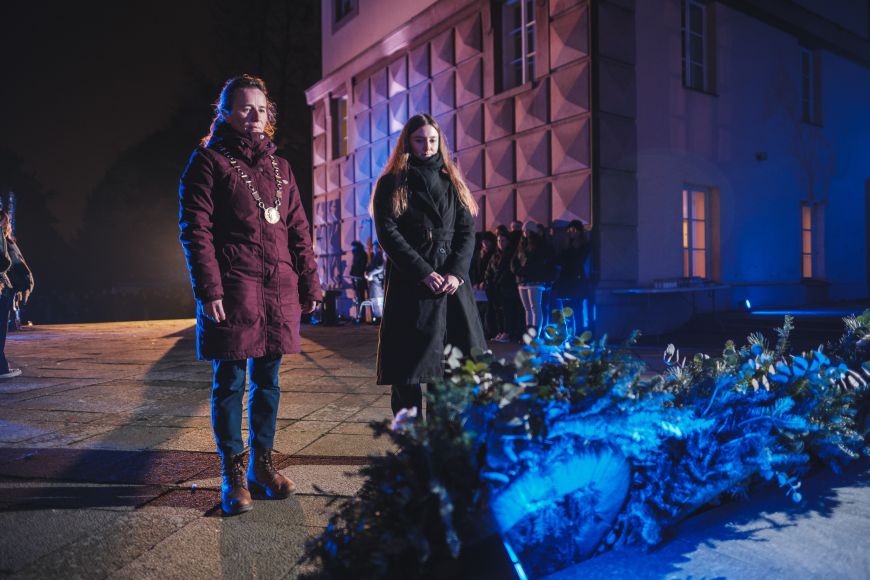
The Faculty of Arts was represented by Dean Irena Radová and Lucie Machalová.
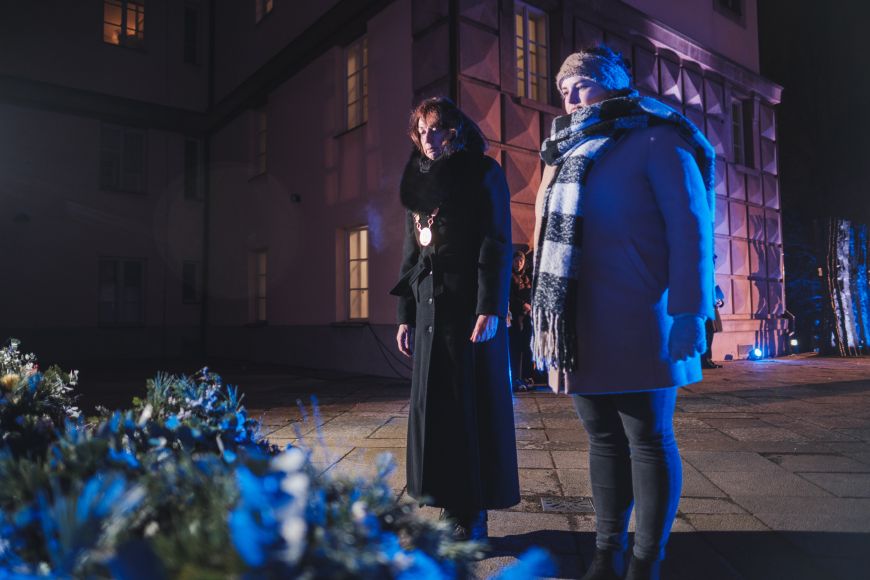
The Faculty of Education was represented by Dean Simona Koryčánková and Michaela Skalníková.
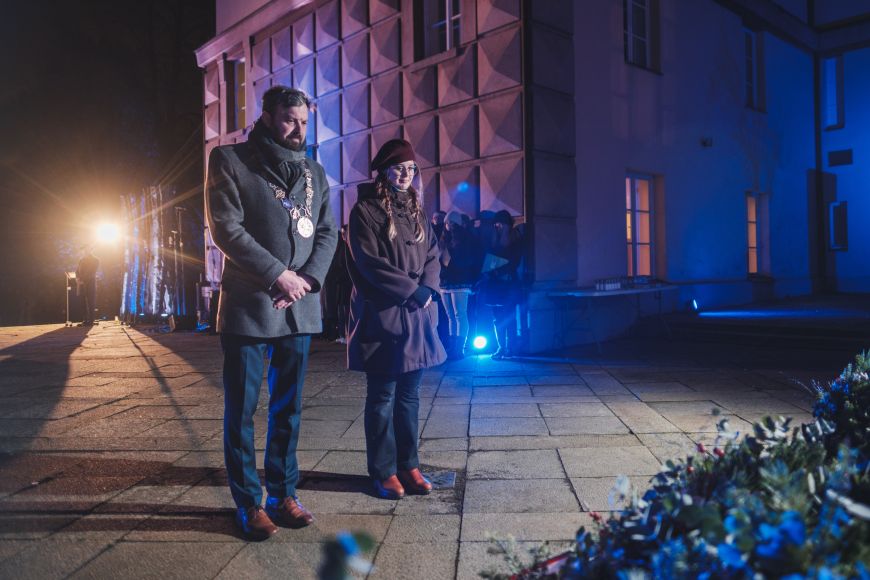
Vice-Dean Jakub Treml and Jaroslava Jamrichová laid wreaths for the Faculty of Pharmacy.
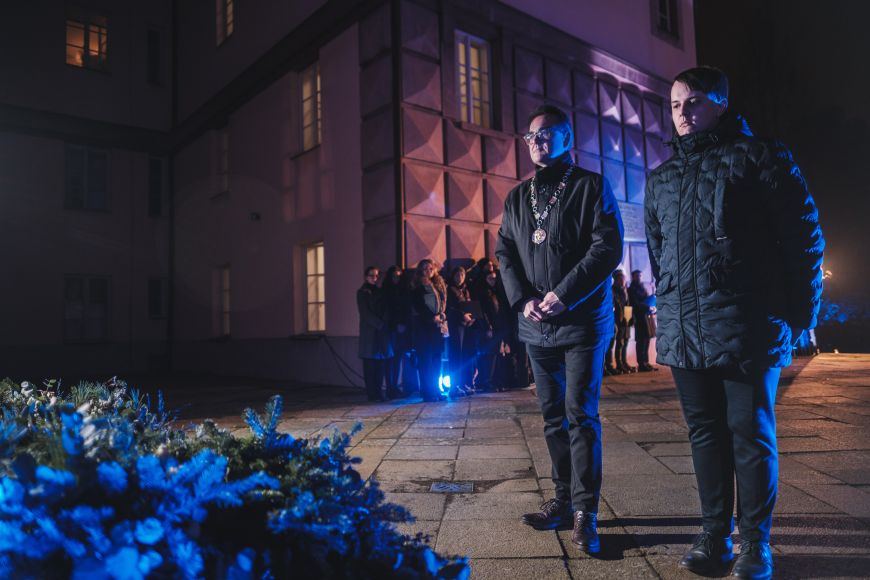
The Faculty of Economics and Administration was represented by Dean Jiří Špalek and Martin Zigmund.
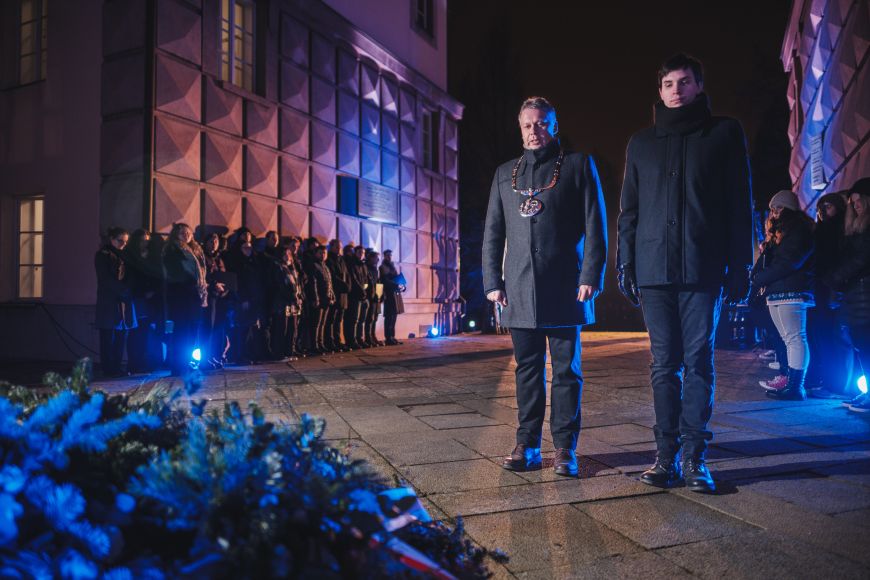
Dean Jiří Barnat and Jakub Šárník laid wreaths for the Faculty of Informatics.
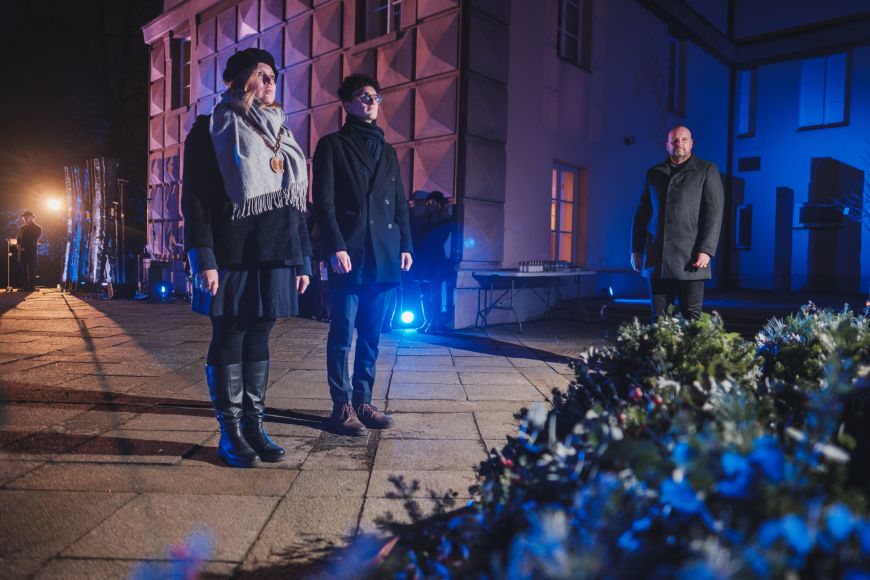
Vice-Dean Veronika Velička Zapletalová and Jerguš Dovala laid wreaths for the Faculty of Social Studies.
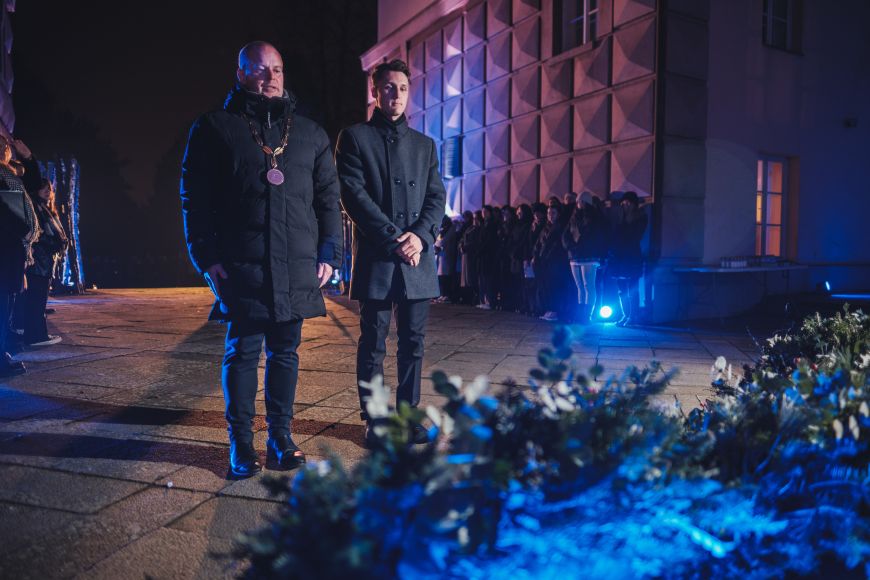
Dean Jan Cacek and Alexandr Paťava laid wreaths for the Faculty of Sports Studies.
